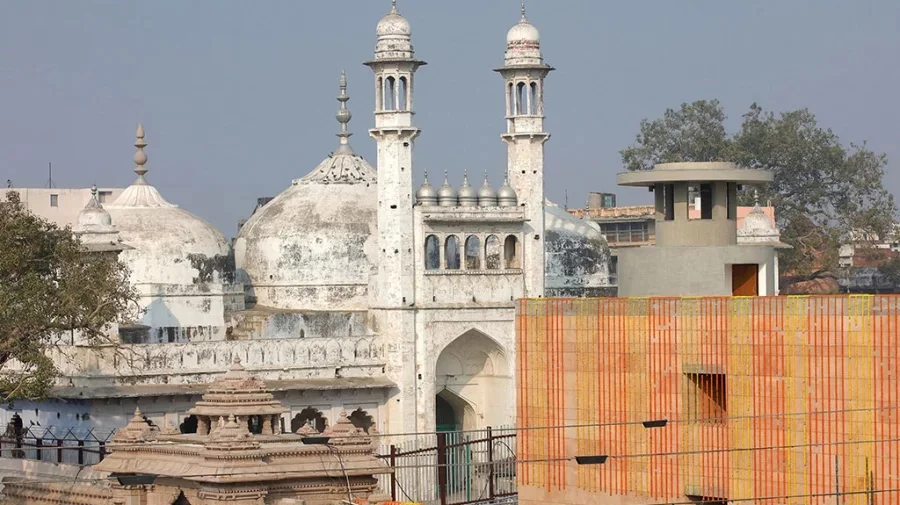Hindu devotees worship at Gyanvapi mosque after court order
Share on:

Last month, India's official archaeological agency said a survey of the site appeared to corroborate the belief that it was originally home to a temple
Hindu worshippers on Thursday began praying inside a disputed mosque in the Indian city of Varanasi just hours after a court order gave them the go-ahead at the deeply sensitive site, media reported.
The Gyanvapi mosque in the holy city of Varanasi is one of several Islamic houses of worship that Hindu activists, backed by Prime Minister Narendra Modi's party, have sought for decades to reclaim.
A Varanasi court ruled on Wednesday that Hindu worshippers could pray in the building's basement, and ordered authorities to "make proper arrangements" for worshippers within a week.
Broadcaster NDTV reported that family members of Hindu priests started praying in the mosque's basement in the early hours of Thursday morning.
The Gyanvapi mosque was built in the 17th century during the Muslim Mughal empire in a city where Hindus from across the country cremate relatives by the Ganges river.
Hindu worshippers believe the mosque replaced a temple to the Hindu deity Shiva.
Last month, India's official archaeological agency said a survey of the site appeared to corroborate the belief that it was originally home to a temple, according to local news reports.
Emboldened right-wing Hindu groups have laid claim to several Muslim sites of worship they say were built atop ancient temples during Mughal rule.
Last week, Modi presided over a grand inauguration ceremony in the nearby city of Ayodhya for a Hindu temple built on grounds once home to the centuries-old Babri mosque.
Hindu zealots had torn down that mosque in 1992 in a campaign spearheaded by members of Modi's party, sparking sectarian riots that killed 2,000 people nationwide, most of them Muslims.
The decades-long court battle that ensued over the future of the Babri site ended in 2019 when India's top court permitted the construction of a temple to the deity Ram, who according to Hindu scripture was born in the city.
Calls for India to enshrine Hindu supremacy have rapidly grown louder since Modi took office in 2014, making its roughly 210-million-strong Muslim minority increasingly anxious about their future.
Source: AFP

